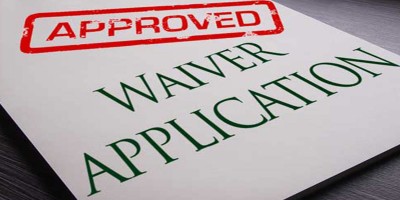A waiver enables a service that is non-compliant with the National Regulations or an element of the National Quality Standard to be taken to be compliant, or not required to comply, during the period that the waiver is in force.
There are two types of waivers:
- Temporary waivers may be granted for up to 12 months.
Service waivers may be granted if a service is unable to meet requirements for an ongoing period. There is no expiry date for a service waiver.
An approved provider with an approved service may apply at any time for a waiver to comply with a specific regulation or element of the National Quality Standards. A provider may also apply for a service waiver at the time of applying for service approval.
The Department may waive the requirement altogether or require that the applicant complies with the requirement by an alternate means. It may also stipulate a timeframe for when the waiver is in effect.
Waivers ECEC Services Can Apply For
Staffing waivers
- Staff details, including rosters and qualifications.
- Evidence of recruitment e.g. advertising and the outcomes of a recruitment attempt.
- Evidence of progress towards relevant qualifications.
- Strategies in place to attract, upskill and retain staff.
- What the service is doing to meet the immediate shortfall.
- Impact on programming, educational outcomes and experience of children.
Physical environment waivers (including indoor and outdoor spaces)
- Access to indoor and outdoor spaces, or facilities e.g. toilets.
- Building and floor plans by a certified building practitioner.
- Photos of relevant spaces, e.g. simulated outdoor space.
- Details of renovations
- Impact on programming, educational outcomes and experience of children.
- A statement from the applicant about ‘exceptional circumstances’
- The location of the premises, such as a high-density area, or CBD.
- The availability of alternative sites in the area that may provide appropriate indoor or outdoor space.
- Any proposed design of the indoor or outdoor space, such as indoor space being used as simulated outdoor space.
At the discretion of the Regulatory Authority, an authorised officer may visit the service premises to view the relevant spaces and gather additional information.
Assessing an Application
The Regulatory Authority will assess applications for service or temporary waivers on a case-by-case basis and will give consideration to the following matters (as also largely outlined in the Guide to the National Quality Framework, published by the Australian Children’s Education and Care Quality Authority (ACECQA)).
General matters
- The measures being taken or to be taken to protect the well-being of children being educated and cared for by the service while the proposed waiver would be in place.
- Whether the service can meet the objectives of the regulations by alternative means.
- The benefits to families, children and communities in having the service operation.
- The service’s Quality Improvement Plan.
- The number and age range of children enrolled at the service.
- Attempts made by the approved provider to comply with the requirement(s).
- The cost of any adjustments needed for the service to comply with the regulations for which a waiver is being sought.
- The compliance history of the approved provider and/or the service.
- Unusual or unforeseen circumstances, such as natural disasters.
- Whether the issue is ongoing (i.e. longer than 12 months) and requires a service waiver, rather than a temporary waiver, or circumstances have changed and a temporary waiver is required instead of a service waiver.
- The service’s most recent assessment and rating outcomes.
Guiding Principles
The Regulatory Authority’s over-arching principles for implementing its functions are set out in the Guiding Principles Policy. Specific principles that apply to waivers include the following:
- The Regulatory Authority will only grant waivers in exceptional circumstances or unexpected events for the purpose of helping providers maintain their level of service to families while addressing those circumstances.
- The Regulatory Authority will not grant a waiver where to do so would compromise the safety, health or well-being, or developmental outcomes, of children attending the service.
- The Regulatory Authority will not grant a waiver where alternative arrangements to meet the regulatory requirements would result in an unsatisfactory deficiency in education and care service facilities, teaching and programming.
- The Regulatory Authority will generally not grant a service waiver with respect to regulations pertaining to staffing.
- The Regulatory Authority may revoke a waiver in circumstances where the operation of the waiver is ineffective in ensuring compliance with the objectives of the National Law, or the provider is not complying with the waiver or any conditions on the waiver.
- The Regulatory Authority will ensure that providers to which waivers are granted are notified, in a timely way, of the approval of the waiver, and any amendment or revocation of the waiver.
Where a service waiver is in force, the approved education and care service is taken to comply with the element or elements of the National Quality Standard and the national regulations that are specified in the waiver. Where a temporary waiver is in force, the approved education and care service is not required to comply with the element or elements of the National Quality Standard and the national regulations that have been temporarily waived
For more detailed information: Waiver Policy







 As an Educator in Australia, your pay rate falls under the Children’s Services Award 2010. This award states the minimum amount that an employer can
As an Educator in Australia, your pay rate falls under the Children’s Services Award 2010. This award states the minimum amount that an employer can When working as a qualified Early Childhood Teacher (with a university degree) within a service, your rate of pay will come from the Educational Services
When working as a qualified Early Childhood Teacher (with a university degree) within a service, your rate of pay will come from the Educational Services When working as a Diploma Qualified Educator your pay rate is from the Children's Services Award 2010. This Award states your minimum rate of pay
When working as a Diploma Qualified Educator your pay rate is from the Children's Services Award 2010. This Award states your minimum rate of pay When working as a Cert 3 Qualified Educator, your pay rate is from the Children's Services Award 2010. This Award states your minimum rate of
When working as a Cert 3 Qualified Educator, your pay rate is from the Children's Services Award 2010. This Award states your minimum rate of Educational Leaders play a crucial role in their early childhood service by ensuring that the educational program aligns with best practices and supports the holistic
Educational Leaders play a crucial role in their early childhood service by ensuring that the educational program aligns with best practices and supports the holistic In early childhood education and care, ratios are more than a technicality—they are a frontline safeguard. Every child deserves responsive supervision, emotional connection, and developmental
In early childhood education and care, ratios are more than a technicality—they are a frontline safeguard. Every child deserves responsive supervision, emotional connection, and developmental Here’s a comprehensive Mobile Phone and Smart Watch Policy tailored for early childhood education and care (ECEC) services in Australia, aligned with the latest 2025
Here’s a comprehensive Mobile Phone and Smart Watch Policy tailored for early childhood education and care (ECEC) services in Australia, aligned with the latest 2025 With the new national child safety reforms kicking in on 1 September 2025, early childhood services like yours have a real opportunity to lead the
With the new national child safety reforms kicking in on 1 September 2025, early childhood services like yours have a real opportunity to lead the The Sea of Fish Challenge is a national initiative that invites children, educators, families, and communities to create and display fish artworks as a symbol
The Sea of Fish Challenge is a national initiative that invites children, educators, families, and communities to create and display fish artworks as a symbol Across the early childhood education and care sector, educators are sounding the alarm: current staffing ratios are insufficient to deliver safe, meaningful, and developmentally appropriate
Across the early childhood education and care sector, educators are sounding the alarm: current staffing ratios are insufficient to deliver safe, meaningful, and developmentally appropriate


